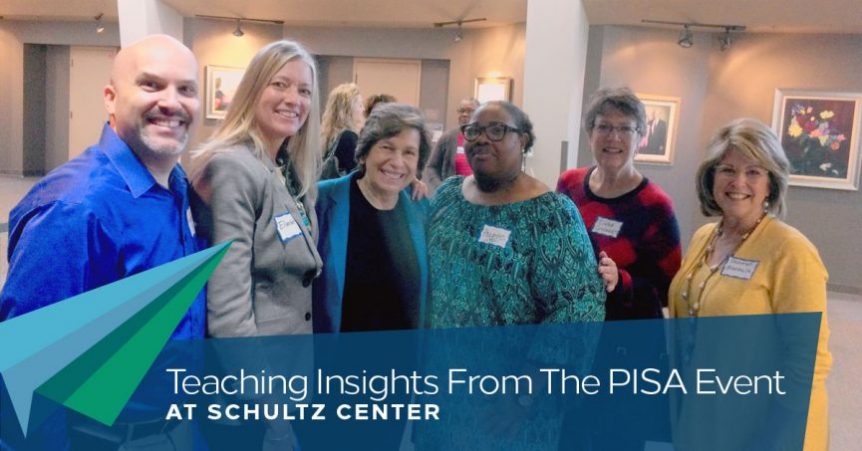
Teaching Insights From The PISA Event At Schultz Center
In our era of instant news and attention-grabbing posts and tweets, we have to choose to do some work to get the story behind the headlines. On a recent Saturday morning, hundreds of northeast Florida educators chose to gather at the Schultz Center to hear more about effective teaching and learning techniques from an analysis of tests taken by 15 year olds from more than 70 nations.
The PISA (Program for International Student Assessment) report is released every three years and the headlines proclaim American student proficiency in literacy, math, and science is lagging behind; in fact, we rank in the middle of the pack.
What most Americans do not know is the backstory behind the ranking of nations. PISA gathers so much data beyond test scores that the report is nearly 6000 pages long and released one year after the test is given to allow adequate time for analysis. The takeaway from the last several PISA reports is remarkably consistent. The top performing nations focus on the teaching and learning process, not high-stakes testing and accountability. High-performing nations give teachers:
TRUST:
- The teaching profession is highly regarded and respected in nations that perform well on PISA, especially in nations where teachers are entrusted with developing curriculum and assessments to meet the needs of students.
TIME:
- Collaborative planning time with peers for reflection and preparing lessons account for half of the work week for teachers internationally who spend an average 19 hours in the classroom. American teachers spend 27 hours in the classroom, absorb more administrative tasks, teach more students than their international peers, and have much less time for collaboration, preparation, and planning.
TOOLS :
- Peer-learning communities, career-long learning support, and school autonomy are among the professional tools given to educators in the top half of the PISA ranking.
The research is clear that the greatest influence on student learning is the quality of the teacher. Schultz Center was created in 2001 to assist area districts in supporting professional learning for teachers throughout their careers and to create a high-quality teaching force as a prime economic driver in northeast Florida.
We believe teachers are closest to the children they serve and their that expertise is invaluable. At Schultz, we encourage lifelong learning with respect for teachers’ time, provide meaningful tools to improve their ability to educate learners of all ages, and demonstrate trust for the teaching profession.